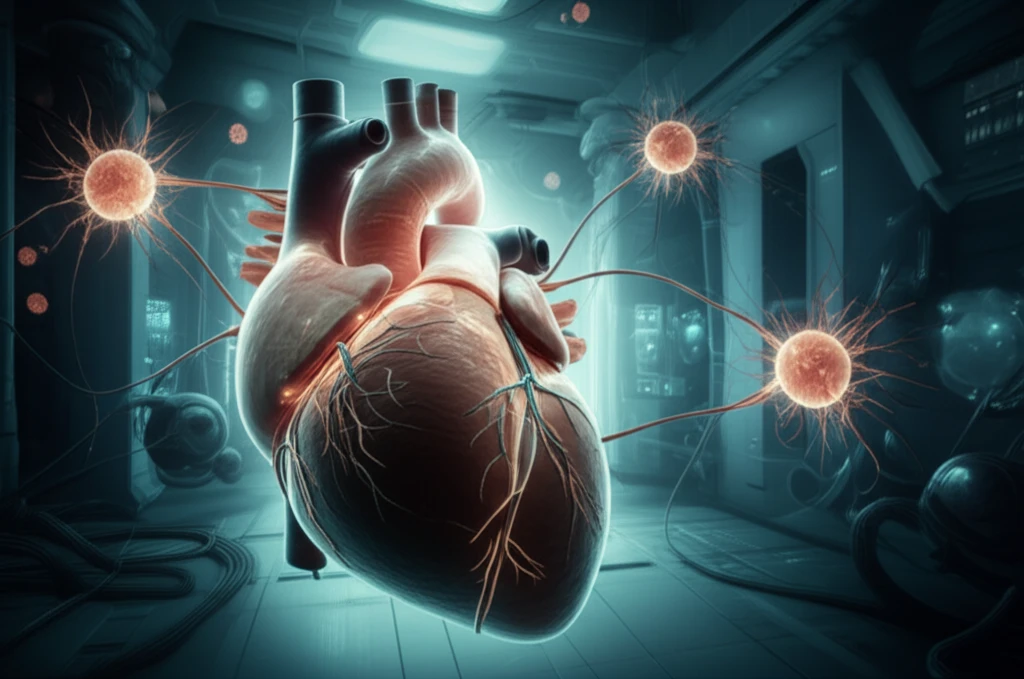
Stem Cell Breakthroughs: Hope or Hype?
"Navigating the promises and pitfalls of stem cell research for heart failure treatment."
The field of regenerative medicine is constantly evolving, and stem cell therapy has emerged as a beacon of hope for treating various debilitating conditions. Among these, heart failure, a chronic and progressive condition affecting millions worldwide, has garnered significant attention. The promise of using stem cells to repair damaged heart tissue and restore cardiac function offers a potential alternative to traditional treatments like medication and heart transplantation.
In Japan, a pioneering clinical trial has conditionally approved the use of 'reprogrammed' adult stem cells to treat patients with heart failure. This marks a significant step forward, representing the world's first clinical trial of its kind. The trial involves using sheets of heart-muscle cells derived from stem cells to regenerate damaged heart tissue. While this advancement offers hope for patients, it also raises important questions about the safety, efficacy, and ethical considerations of such treatments.
This article delves into the complexities surrounding this clinical trial, examining the potential benefits and risks, as well as the broader implications for the future of stem cell therapy. We will explore the concerns raised by researchers regarding the trial's protocol, focusing on the type of stem cells used and the selection of participants, and assess whether the trial can truly deliver on its promise of improving the lives of heart failure patients.
What Are the Key Concerns About the Stem Cell Trial Protocol?

Several concerns have been raised regarding the clinical trial's protocol, particularly concerning the use of allogeneic induced pluripotent stem (iPS) cells. These cells, created from different donors, carry the risk of triggering a transplant rejection in the recipient. While immunosuppressants can help prevent rejection, they also come with their own set of risks, including promoting tumor development and other unpleasant side effects.
- Risk of Transplant Rejection: Allogeneic iPS cells from different donors can trigger immune responses.
- Side Effects of Immunosuppressants: Drugs used to prevent rejection can lead to tumor development and other health issues.
- Potential Solution: Autologous iPS cells, derived from the patient's own cells, eliminate rejection risk.
Ensuring Ethical and Scientific Rigor in Stem Cell Research
Addressing these scientific and ethical considerations is crucial to ensure that clinical trials of stem cell therapies are both safe and effective. By carefully evaluating the risks and benefits, refining trial protocols, and prioritizing patient safety, we can harness the full potential of stem cell research to transform the treatment of heart failure and other debilitating conditions. Only then can stem cell therapy truly live up to its promise of offering new hope to patients in need.
